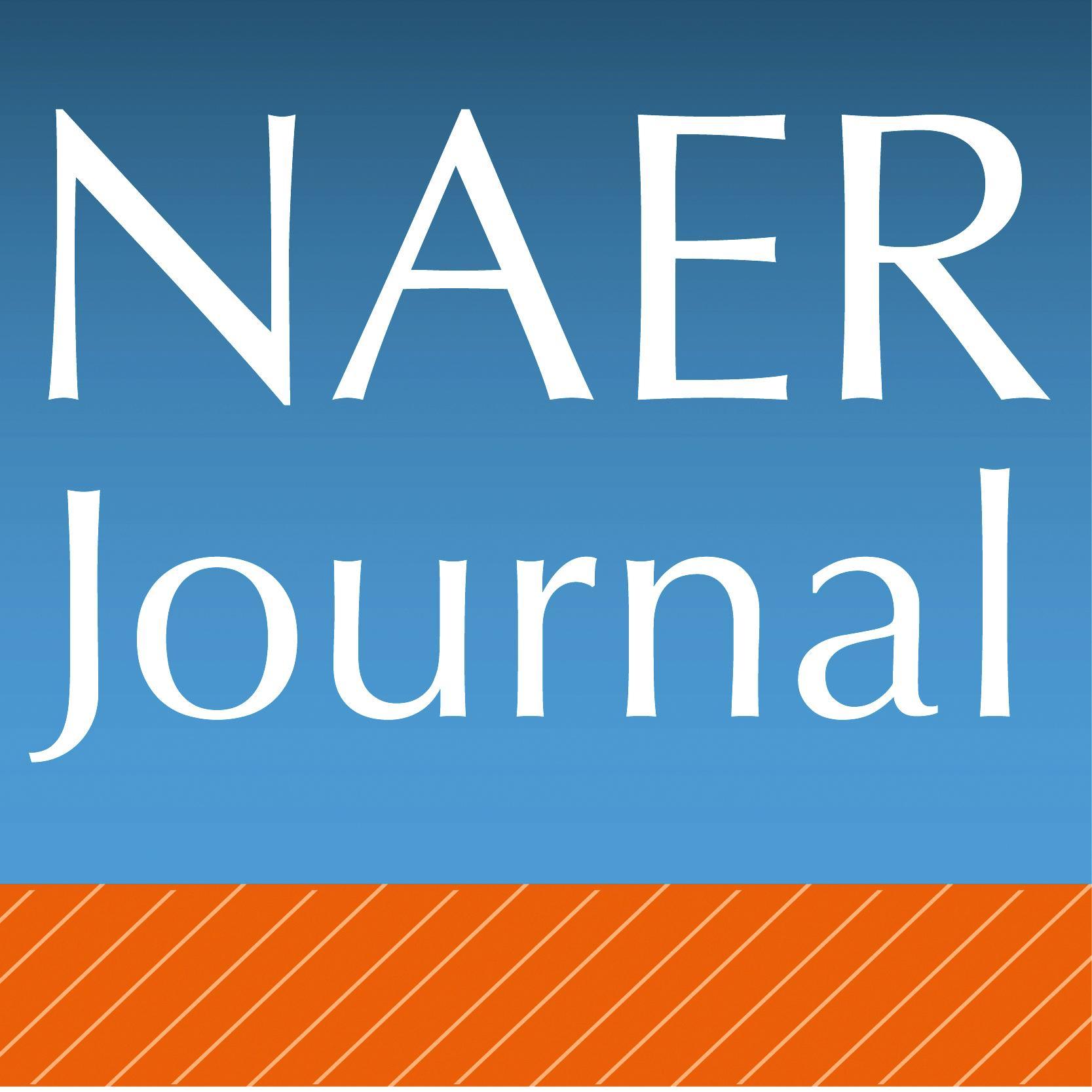Videojuegos aplicados a la enseñanza de las matemáticas iniciales: una revisión sistemática
Resumen
En la actualidad, uno de los principales retos para los docentes e instituciones educativas es contar con recursos digitales que fomenten la inclusión en el aula. Con el objetivo de identificar los avances en la creación de recursos educativos digitales para la enseñanza de las matemáticas, se llevó a cabo una revisión sistemática de estudios publicados en español e inglés entre 2018 y 2022, consultando bases de datos como Scopus, Web of Science, ERIC, IEEE y PsycINFO. Para realizar este trabajo, se siguieron los lineamientos de la declaración PRISMA (Ouzzani et al., 2016; Page et al., 2021), así como los pasos propuestos por Sánchez-Meca (2022) y las recomendaciones de Marín (2022). Se identificaron las características utilizadas en los recursos digitales y se extrajeron inferencias para proponer principios rectores en la creación de videojuegos educativos enfocados en la enseñanza de las matemáticas. Además, se evaluaron los resultados obtenidos en dichas experiencias y se encontraron evidencias que respaldan el uso de estos recursos digitales, aunque los autores reconocen las limitaciones de su trabajo. Tras la lectura y análisis de los estudios, se destacan ciertos elementos que deben ser considerados en el diseño de estos recursos digitales para garantizar el éxito en su implementación como estrategias didácticas en la enseñanza de las matemáticas.
Descargas
-
Resumen1823
-
PDF1809
-
PDF Kindle1809
Citas
Aunio, P. y Mononen, R. (2018). The effects of educational computer game on low-performing children’s early numeracy skills–an intervention study in a preschool setting. European journal of special needs education, 33(5), 677-691. https://doi.org/10.1080/08856257.2017.1412640
Ausubel, D. P., Novak, J. D. y Hanesian, H. (1976). Psicología educativa: un punto de vista cognoscitivo (Vol. 3). México.
Bang, H. J., Li, L. y Flynn, K. (2022). Efficacy of an Adaptive Game-Based Math Learning App to Support Personalized Learning and Improve Early Elementary School Students’ Learning. Early Childhood Education Journal, 1-16. https://doi.org/10.1007/s10643-022-01332-3
Banting, N. y Williams, C. (2020). Children’s Games and Games for Children. Mathematics Teacher: Learning and Teaching PK-12, 113(12), 983-988. https://doi.org/10.5951/MTLT.2020.0110
Beserra, V., Nussbaum, M. y Oteo, M. (2019). On-task and off-task behavior in the classroom: A study on mathematics learning with educational video games. Journal of educational computing research, 56(8), 1361-1383. http://0-dx-doi-org.llull.uib.es/10.1177/0735633117744346
Chen, I. H., Gamble, J. H., Lee, Z. H., y Fu, Q. L. (2020). Formative assessment with interactive whiteboards: A one-year longitudinal study of primary students’ mathematical performance. Computers & Education, 150, 103833. https://doi.org/10.1016/j.compedu.2020.103833
Clark, R. (1983). Reconsidering research on learning from media. Review of Educational Research, 53(4), pp. 445-449.
Csikszentmihalyi, M. (2010). Fluir (Flow): Una psicología de la felicidad. Editorial Kairós.
Cunha, G. C. A., Barraqui, L. P., y De Freitas, S. A. A. (2018). Evaluating the use of gamification in mathematics learning in primary school children. In 2018 IEEE Frontiers in Education Conference (FIE) (pp. 1-4). IEEE.
Deng, L., Wu, S., Chen, Y. y Peng, Z. (2020). Digital game‐based learning in a Shanghai primary‐school mathematics class: A case study. Journal of Computer Assisted Learning, 36(5), 709-717. DOI: https://doi.org/10.1111/jcal.12438
Derya, C. A. N. (2020). Supporting learning trajectories for the development of number concept: Digital games. Journal of Theoretical Educational Science, 13(4), 663-684.
Desoete, A. y Praet, M. (2022). A Pilot Study on the Effectiveness of Kindergarten Games to Enhance Mathematical Skills. Journal of Cognitive Education and Psychology, 21(1), 21-33. https://doi.org/10.1891/JCEP-2021-0020
Gagne, R. M. (1974). Instruction and the conditions of learning. Psychology of school learning: Views of the learner, 1, 153-175.
Gardner, H. (1993). Frames of Mind: The Theory of Multiple Intelligences. Basic Books.
Gee, J. P. (2004). Lo que nos enseñan los videojuegos sobre el aprendizaje y el alfabetismo. Aljibe.
Jacob, R., Erickson, A. y Mattera, S. (2020). Evaluating the impact of small group supplemental math enrichment in kindergarten. Journal of Research on Educational Effectiveness, 13(3), 381-407. http://dx.doi.org/10.1080/19345747.2020.1726539
Kamarulzaman, N. S. B., Phon, D. N. E. y Baharuddin, M. S. (2021, August). A Mathematical Educational Game Application for Primary School Slow Learner. In 2021 International Conference on Software Engineering & Computer Systems and 4th International Conference on Computational Science and Information Management (ICSECS-ICOCSIM) (pp. 348-353). IEEE. https://doi.org/10.1109/ICSECS52883.2021.00070
Keller, T., Hebeisen, A. y Brucker-Kley, E. (2018). Integration of Children with Special Needs in Mathematics through Virtual Reality. International Association for Development of the Information Society.
Kiili, K., Moeller, K. y Ninaus, M. (2018). Evaluating the effectiveness of a game-based rational number training-In-game metrics as learning indicators. Computers & Education, 120, 13-28. https://doi.org/10.1016/j.compedu.2018.01.012
Lee, H. K. y Choi, A. (2020). Enhancing early numeracy skills with a tablet-based math game intervention: a study in Tanzania. Educational Technology Research and Development, 68(6), 3567-3585. https://doi.org/10.1007/s11423-020-09808-y
Makonye, J. (2020). Teaching Young learners pre-number concepts through ICT mediation. Research in Education, 108(1), 3-21. http://dx.doi.org/10.1177/0034523719840051
Marín, V. I. (2022). La revisión sistemática en la investigación en Tecnología Educativa: observaciones y consejos. RiiTE Revista Interuniversitaria de Investigación en Tecnología Educativa, 13, p. 62-79. https://doi.org/10.6018/riite.533231
McNaughton, S., Rosedale, N., Jesson, R. N., Hoda, R. y Teng, L. S. (2018). How digital environments in schools might be used to boost social skills: Developing a conditional augmentation hypothesis. Computers & Education, 126, 311–323.
Owen, V. E., Roy, M. H., Thai, K. P., Burnett, V., Jacobs, D., Keylor, E. y Baker, R. S. (2019). Detecting Wheel-Spinning and Productive Persistence in Educational Games. International educational data mining society. https://files.eric.ed.gov/fulltext/ED599202.pdf
Ouzzani, M., Hammady, H., Fedorowicz, Z. y Elmagarmid, A. (2016). Rayyan—a web and mobile app for systematic reviews. Systematic Reviews, 5(210). https://doi.org/10.1186/s13643-016-0384-4
Page, M. J., McKenzie, J. E., Bossuyt, P. M., Boutron, I., Hoffmann, T. C., Mulrow, C. D., Shamseer, L., Tetzlaff, J. M., Akl, E. A., Brennan, S. E., Chou, R., Glanville, J., Grimshaw, J. M., Hróbjartsson, A., Lalu, M. M., Li, T., Loder, E. W., Mayo-Wilson, E., McDonald, S., … Moher, D. (2021). Declaración PRISMA 2020: Una guía actualizada para la publicación de revisiones sistemáticas. Revista Española de Cardiología, 74(9), 790-799. https://doi.org/10.1016/j.recesp.2021.06.016
Piaget, J. (1952). The origins of intelligence in children. International Universities Press.
Ramani, G. B., Daubert, E. N., Lin, G. C., Kamarsu, S., Wodzinski, A., y Jaeggi, S. M. (2020). Racing dragons and remembering aliens: Benefits of playing number and working memory games on kindergartners' numerical knowledge. Developmental science, 23(4), e12908. http://dx.doi.org/10.30831/akukeg.692165
Ryan, R. y Deci, E. L. (2000). La Teoría de la Autodeterminación y la Facilitación de la Motivación Intrínseca, el Desarrollo Social, y el Bienestar. American psychologist, 55(1), 68-78.
Sánchez-Meca, J. (2022). Revisiones sistemáticas y meta-análisis en Educación: Un tutorial. RiiTE Revista interuniversitaria de investigación en Tecnología Educativa, 13, 5-40. https://doi.org/10.6018/riite.545451
Schenke, K., Redman, E. J., Chung, G. K., Chang, S. M., Feng, T., Parks, C. B. y Roberts, J. D. (2020). Does “Measure Up!” measure up? Evaluation of an iPad app to teach preschoolers measurement concepts. Computers & Education, 146, 103749. https://doi.org/10.6018/riite.533231 10.1016/j.compedu.2019.103749
Skinner, B. F. (1953). Ciencia y conducta humana. Fondo de Cultura Económica.
Sun, L., Ruokamo, H., Kangas, M. y Siklander, P. (2022). Effects of Collaborative Digital Gameplay on Students' Three Dimensions of Engagement in Mathematics. International Journal of Game-Based Learning (IJGBL), 12(1), 1-16. http://0-dx-doi-org.llull.uib.es/10.4018/IJGBL.294012
Tan, C. W., Ling, L., Yu, P. D., Hang, C. N. y Wong, M. F. (2020, August). Mathematics Gamification in Mobile App Software for Personalized Learning at Scale. In 2020 IEEE Integrated STEM Education Conference (ISEC) (pp. 1-5). IEEE. https://doi.org/10.6018/riite.533231 10.1109/ISEC49744.2020.9397846
Thai, K. P., Bang, H. J., y Li, L. (2022). Accelerating early math learning with research-based personalized learning games: A cluster randomized controlled trial. Journal of Research on Educational Effectiveness, 15(1), 28-51. http://dx.doi.org/10.1080/19345747.2021.1969710
Thorndike E. L. (1931). Húifmn learning. Massachusetts: M.I.T. Press.
Zaranis, N. y Alexandraki, F. (2021). Game-Based Learning for Teaching Multiplication and Division to Kindergarten Students. In Smart Pedagogy of Game-based Learning (pp. 85-101). Springer, Cham. http://0-dx-doi-org.llull.uib.es/10.1007/978-3-030-76986-4_6
Zito, L., Cross, J. L., Brewer, B., Speer, S., Tasota, M., Hamner, E., Johnson, M., Lauwers, T. y Nourbakhsh, I. (2021). Leveraging tangible interfaces in primary school math: Pilot testing of the Owlet math program. International Journal of Child-Computer Interaction, 27, 100222. http://0-dx-doi-org.llull.uib.es/10.1016/j.ijcci.2020.100222
Zualkernan, I. A., Aloul, F., Algebail, E., El Refaay, M., Ali, A. y El Sabaa, O. (2020, July). Little Genius: An Experiment in Internet of Tangible Learning Things. In 2020 IEEE 20th International Conference on Advanced Learning Technologies (ICALT) (pp. 69-71). IEEE. https://doi.org/10.6018/riite.533231 10.1109/ICALT49669.2020.00028
Derechos de autor 2023 Claudia Raquel Screpnik, Javier Cabrera Mejia , Francisca Negre Bennasar, Jesús Salinas Ibáñez

Esta obra está bajo una licencia internacional Creative Commons Atribución-NoComercial-CompartirIgual 4.0.
Aquellos autores que tengan publicaciones con esta revista aceptan los términos siguientes :
-
Los autores conservarán sus derechos de autor y garantizarán a la revista el derecho de primera publicación de su obra, el cuál estará simultáneamente sujeto a la Licencia Creative Commons Atribución no comercial compartir por igual 4.0 Internacional que permite compartir, copiar y redistribuir el material en cualquier medio o formato y adaptar, remezclar, transformar y construir sobre el material en los siguientes términos:
Reconocimiento - Debe dar el crédito apropiado, proporcionar un enlace a la licencia, e indicar si se han realizado cambios. Puede hacerlo de cualquier manera razonable, pero no de una manera que sugiere que el licenciante o su uso hace suya. No comercial - No puede utilizar el material con fines comerciales. Compartir bajo la misma - Si remezcla, transformar o crear sobre el material, se debe distribuir sus contribuciones bajo la misma licencia que el original. -
Los autores podrán adoptar otros acuerdos de licencia no exclusiva de distribución de la versión de la obra publicada (p. ej.: depositarla en un archivo telemático institucional o publicarla en un volumen monográfico) siempre que se indique la publicación inicial en esta revista.
-
Se permite y recomienda a los autores difundir su obra a través de Internet (p. ej.: en archivos telemáticos institucionales o en su página web) antes y durante el proceso de envío, lo cual puede producir intercambios interesantes y aumentar las citas de la obra publicada. (Véase El efecto del acceso abierto).
-
En cualquier caso, el Equipo Editorial entiende que las opiniones vertidas por los autores son de su exclusiva responsabilidad.
















